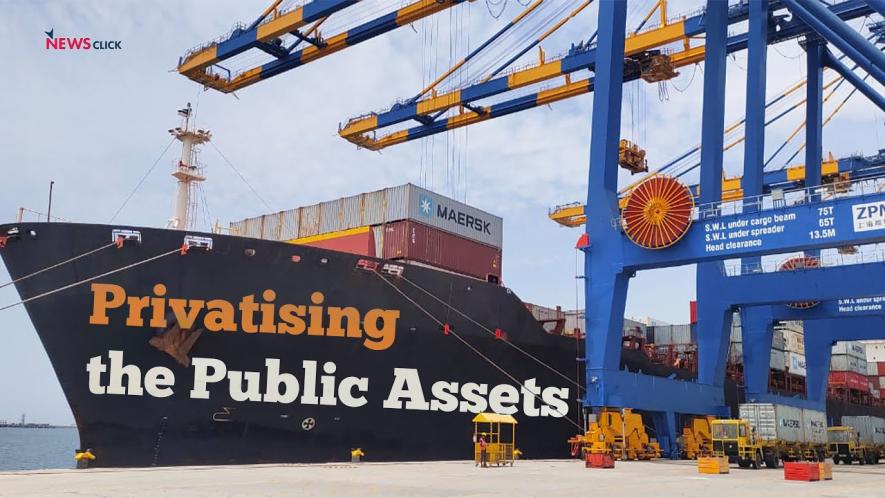Increasing Privatisation Killing Reservation as Unemployment Soars

India does not provide a good unemployment allowance despite joblessness being a serious economic and social problem. For example, Uttar Pradesh (UP) provides a meagre Rs 1,000 unemployment allowance to matriculates and Rs 1,500 for graduates.
Employment in the government and public sector is the lowest at 3.8%, as per International Labour Organisation data, compared to 16.9% in Argentina, 12.3%, 28% in China, 13.3% in the USA, 21.5% in the UK, 40.6% in Russia and 77% in Cuba.
Therefore, more jobs should be created in the government and public sector, which provides quota to SCs (15%), STs (7.5%), OBCs (27%), weaker sections among the forward castes (7.5%) whose income is below Rs 8 lakh per annum, ex-servicemen and the physically challenged.
The Centre is killing the reservation policy by privatisation, outsourcing, contracts and non-appointment, affecting employment opportunities. India has now one of the highest unemployment rate after Independence.
As per the Report of the Seventh Central Pay Commission in 2015, there were 52 lakh government employees. The number of vacancies declined to 40.66 lakh as of March 1, 2019—a reduction of 11.34 lakh—out of which only 31.43 lakh were filled, a gross contraction of 20.57 lakh. If these vacancies were filled, 3,08,550 SCs, 1,54,275 STs and 5,55,390 OBCs would have been employed. Total, 20.57 lakh families would have improved their status and their children would have got better education and quality of life. UP would have got a major share.
In 2012-13, there were 17,33,973 employees in Central Public Sector Enterprises (CPSEs) out of which 2,86,350 were contractual workers and 43,166 daily wagers. Shockingly, in 2019-20, there were only 14,73,810 employees out of which 4,98,807 were contractual workers and 53,127 daily labourers. Contractual workers and daily labourers, whose pay is very low, don’t have reservation, job security and pension.
In 2019-20, a survey of CPSEs showed there were 9,19,648 regular employees out of 1,60,384 were SCs, 99,693 STs and 1,98,581 OBCs. The number would have been double without privatisation and outsourcing of regular work to contractors.
In the Railways, where the reservation policy has been fully implemented, there were 14,41,513 employees as of March 31, 2004, as against 12,53,593 in the same month in 2020. Unfortunately, there are 7.5 lakh contract workers without reservation and job security in the Railways, which is being privatised gradually, taking away the jobs of lakhs of SCs, STs and OBCs.
Public sector banks, another major employer, have the same story. In 2005-06, there were 7,29,424 employees in public sector banks and 1,39,039 in private ones. The government has been encouraging private banking and recruiting lesser employees for public sector banks.
As of March 31, 2021, public sector banks had 7,83,518 employees in spite of a more than 100% increase in business but private banks had 5,70,713. The government has decided to privatise IDBI Bank and two public sector banks, which will have a big impact on job reservation.
Similarly, the number of employees in the Life Insurance Corporation (LIC) of India has declined from 1,19,767 to 1,08,987. LIC, which also implements the reservation policy in toto, also employs 13 lakh agents who earn a good income. The Centre could sell 5%-10% stake in the company and also allow foreign direct investment.
Bharat Sanchar Nigam Limited (BSNL) and Mahanagar Telephone Nigam Limited (MTNL) are classic examples of the government’s intent to privatise the telecom sector. In 2014, BSNL had 2.38 lakh employees and MTNL 36,000. Bent on killing BSNL and MTNL to help Mukesh Ambani’s Reliance Jio, 78,569 BSNL employees and 14,387 MTNL employees opted for VRS in 2019 after they were not paid for months. Around 50,000 contract employees were not paid for a year forcing several of them to commit suicide.
Compared to 2014, BSNL’s employee strength has come down by 71% and MTNL’s 84%. In 2019, a revival package of Rs 69,000 crore for BSNL and MTNL that included their merger, monetisation of their assets, 4G spectrum and VRS was approved. So far, 4G has not been allocated. Both BSNL and MTNL, which are incurring losses and have almost no reservation policy, might disappear sooner or later.
The destructive strategy in the public sector is aimed at gradual privatisation to benefit corporate entities at the expense of the soaring number of jobless Indians.
The author is a joint convenor, People First. The views are personal
Get the latest reports & analysis with people's perspective on Protests, movements & deep analytical videos, discussions of the current affairs in your Telegram app. Subscribe to NewsClick's Telegram channel & get Real-Time updates on stories, as they get published on our website.
























